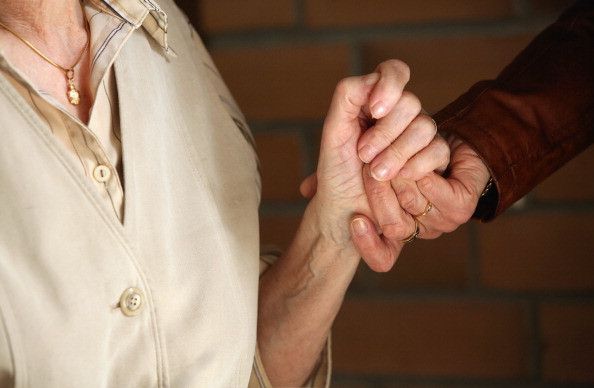Personality changes could be first clear sign of dementia
Awkwardness, apathy and lack of impulse control linked to early development of dementia.

Changes to one's personality may be a clear, early sign of dementia, scientists have said. They have described a new condition called 'Mild Behavioural impairment' (MBI), characterised by behavioural changes associated with a process of neuro-degeneration.
The findings were presented at the Alzheimer's Association International Conference 2016 on 24 July. While Alzheimer's disease is more closely associated with memory loss, the researchers pointed out that personality changes were often observed very early on by the family members of people who then go on to develop this type of dementia.
Identifying early changes in the way these individuals behave could therefore be key to formulate an early, effective diagnosis of dementia.
Personality changes for six months
The team, from the University of Calgary, first worked to define the symptoms of MBI. For people to be diagnosed, they have to have experienced behavioural changes for at least six months.
Different behavioural changes were recorded by the scientists in a new checklist. They were regrouped in five areas of personality which physicians should look for when diagnosing MBI - areas which include apathy and motivation, mood swings, impulse control or lack of it, social appropriateness and thoughts and perception.
"Alzheimer's is a deadly brain disease, and while memory loss is a hallmark of the disease, early symptoms such as anxiety, confusion and disorientation are often more common, troubling and obvious to family members," points out Maria C. Carrillo, PhD, chief science officer at Alzheimer's Association.
"This proposed new checklist describes and helps identify a new clinical stage in the disease. It has the potential to represent a paradigm shift in formal neuro-degeneration testing - away from a sole focus on the memory to also encompass behaviour".
High prevalence
The scientists believe MBI may reflect neuro-degeneration processes in the brain and represent a first stage of the disease, a progression to mild cognitive impairment or dementia. The behaviours detailed in the checklist are often identified and amplified in people with dementia.
In the second part to the study, the scientists looked at 282 people with an average age of 60, who were at an early stage of dementia. They found that 82% of them showed some form of behavioural change. About 78% suffered from mood swings, 65% from a lack of impulse control and 28% were inappropriate in social contexts - often making blunt and rude comments in public.
Research will now focus on coming up with the best questionnaires for physicians to identify these behavioural changes and assess whether they represent a progression towards dementia.
"Our study suggests that MBI may be a common and clinically relevant syndrome, particularly given that such neuro-psychiatric symptoms are associated with greater caregiver burden. (...) Further research is needed to develop MBI-specific questionnaires that may be more appropriate for use in younger and non-demented persons," lead author Zahinoor Ismail says.
Dementia and Alzheimer's disease
Dementia is an umbrella term which refers to the symptoms that occur when the brain is impacted by certain diseases. Though they are different types of dementia, some are more common than others - and they are often named after the disease that caused them to occur.
The best known is the infamous Alzheimer's disease which affects more than 520,000 people in the UK. The disease is caused by a build-up of proteins in the brain which form structures called 'plaques' and 'tangles'. This results in the loss of connections between nerve cells and to the death of these cells.
Symptoms of dementia caused by Alzheimer's include memory lapses, orientation problems, issues with language and communicating, mood swings and behavioural changes (such as inappropriateness, agitation, apathy or aggressiveness). At later stages of the disease, some patients may experience delusions or – less often – hallucinations.
© Copyright IBTimes 2025. All rights reserved.






















